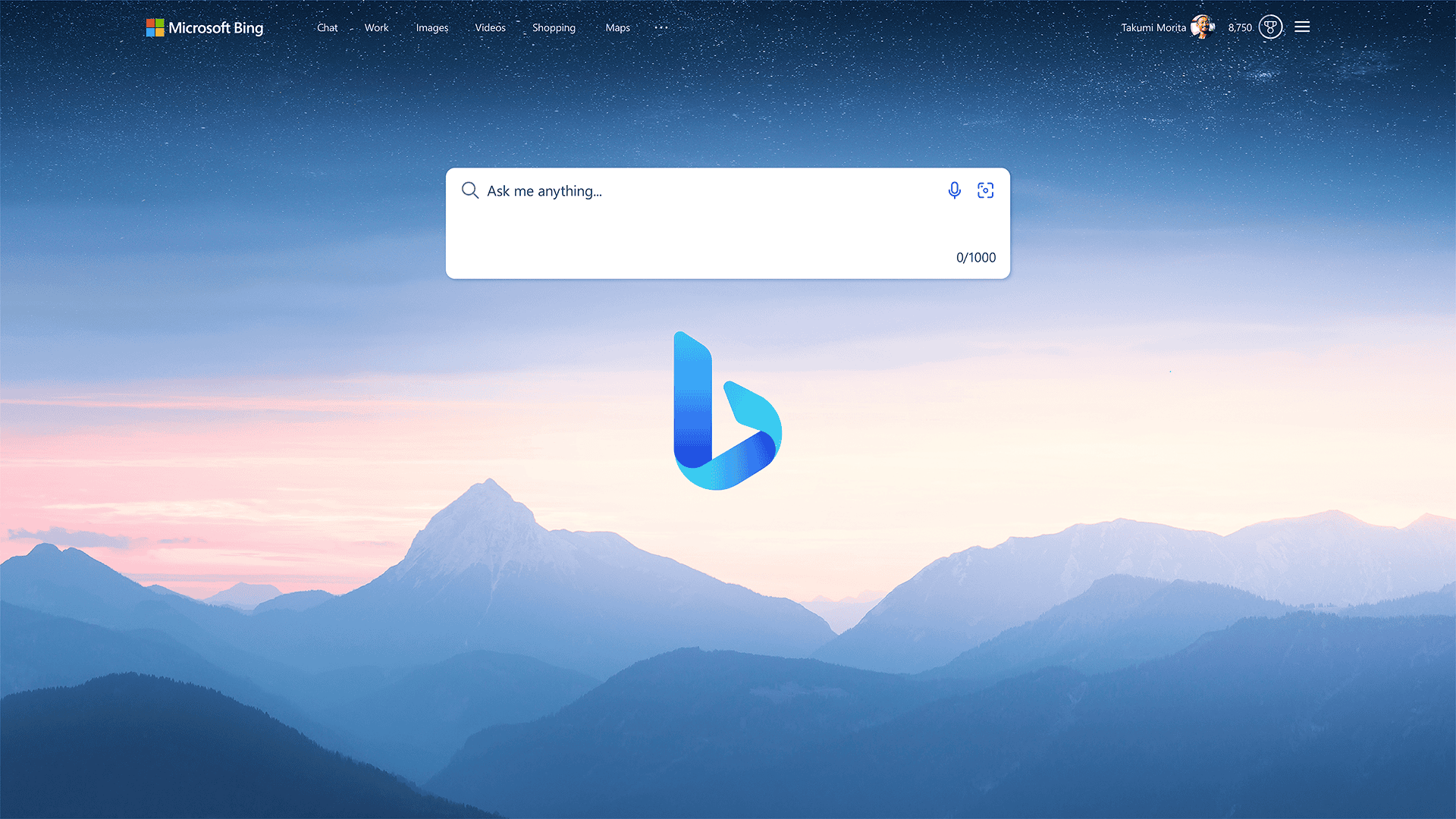The search engine landscape offers a variety of options beyond the most popular platforms. These alternatives cater to different user needs, from enhanced privacy to specialized content focus. Many of these search engines use results from larger providers while adding unique features or prioritizing specific types of information.
Users can choose from search engines that emphasize environmental causes, provide anonymous browsing, or offer rewards for searches. Some alternatives focus on curated content for specific interests, while others incorporate AI tools to enhance search capabilities. The quality of results across different search engines has improved, making it easier for users to find reliable alternatives that suit their preferences.
Beyond Google: Exploring Alternative Search Engines
Google is the most popular search engine. But it’s not the only one! You have many other choices. These alternative search engines offer different features and benefits. Some focus on privacy. Others prioritize different results or have unique search tools. This guide will explore some of the best Google alternative search engines available.
Why Consider Alternatives?
Here are some reasons to try a different search engine:
- Privacy concerns: Some search engines track your data less than Google.
- Different results: You might find different or more relevant results with another search engine.
- Specialized searches: Some search engines are better for specific types of searches, like images or academic papers.
- Ethical reasons: You may prefer a search engine with a different mission or values.
Top Google Alternatives

Here are some of the best alternative search engines:
- Bing: Microsoft’s search engine. It offers similar features to Google, including image and video search.
- DuckDuckGo: A privacy-focused search engine that doesn’t track your searches or personalize results.
- Startpage: Combines Google’s search results with DuckDuckGo’s privacy protections.
- Ecosia: A search engine that uses its profits to plant trees.
- Brave Search: A privacy-focused search engine built into the Brave browser.
Choosing the Right Search Engine
Consider these factors when choosing a search engine:
- Privacy: How important is privacy to you?
- Search results: Do you want similar results to Google or something different?
- Features: What features are important to you, like image search or news aggregation?
- Values: Do you support the search engine’s mission or values?
| Search Engine | Focus | Pros | Cons |
|---|---|---|---|
| Bing | General purpose | Similar features to Google, good image search | May not have the same index size as Google, some find the interface less intuitive |
| DuckDuckGo | Privacy | Doesn’t track searches, good for general use | May lack some advanced features found in Google, results can be less personalized |
| Startpage | Privacy and Google results | Combines Google results with privacy protections | Relies on Google’s index, which may not appeal to those seeking true alternatives |
| Ecosia | Environmental impact | Uses profits to plant trees | Smaller index than major players, may not be the primary choice for feature-heavy searching |
| Brave Search | Privacy | Integrated with Brave browser, good privacy features | Relatively new, may have some indexing gaps compared to more established engines |

Specialized Search Engines
Sometimes you need to find specific information. These specialized search engines can help:
- Google Scholar: For finding academic papers and scholarly articles.
- Wolfram Alpha: For getting answers to factual questions and doing calculations.
- Creative Commons Search: For finding images and other content with Creative Commons licenses.
- Shodan: For finding internet-connected devices, like webcams and servers.
These are just a few of the many specialized search engines available.
The Rise of LLM Search Engines
A new type of search engine is gaining popularity. These search engines use large language models (LLMs) to provide more conversational and informative search results. LLMs are a type of artificial intelligence that can understand and generate human-like text.
Some popular LLM search engines include:
- SearchGPT: Uses the GPT model to provide conversational search results and answer questions in a comprehensive way.
- Perplexity: Another LLM-powered search engine that offers detailed answers and cites its sources.
- You.com: Includes a chat interface powered by LLMs for a more interactive search experience.
How LLMs are changing search:
- Conversational search: Instead of just showing a list of links, LLM search engines can answer your questions in a more natural and conversational way.
- Summarization: LLMs can summarize information from multiple sources, saving you time and effort.
- Contextual understanding: LLMs can better understand the context of your search, leading to more relevant results.
- Personalized results: LLMs can learn your preferences and provide more personalized search results.
Gaining market share:
While still relatively new, LLM search engines are gaining traction. People are finding them more helpful and engaging than traditional search engines. This is putting pressure on Google and other established players to innovate and improve their offerings.
The future of search:
LLMs have the potential to revolutionize how we search for information. As they continue to improve, they may become the dominant type of search engine in the future. This could lead to a more personalized, conversational, and informative search experience.
Key Takeaways
- Alternative search engines offer unique features like privacy protection and specialized content focus
- Many search alternatives use results from larger providers while adding their own enhancements
- Users can find search engines that align with their values, such as environmental causes or anonymous browsing
Tailored Interest Content Provider
AOL’s Personalized Search Experience
AOL Search offers a unique approach to web exploration. It combines a search engine with a customized start page. This page shows selected topics in news, entertainment, health, sports, food, and finance.
Users can employ AOL Search as a standalone web search tool. It boasts a sleek interface and useful image search filters. The platform also allows content filtering to block potentially offensive material.
Privacy settings on AOL Search default to location and activity tracking. Users can modify these options through a Privacy Dashboard. AOL and Yahoo operate under the same company, so web results often match. However, each platform provides distinct interface tools.
AOL Search aims to deliver curated content tailored to user interests. This feature sets it apart from standard search engines. It presents a blend of general web results and specialized topic selections.
Enhancing Online Searches: Privacy, Customization, and AI Integration
Brave’s Innovative Search Engine
Brave Search offers a unique approach to online queries. This platform prioritizes user privacy while delivering personalized results. Brave’s search engine uses its own web crawling index and anonymous third-party API calls to generate search outcomes.
Users can choose between AI-powered results and standard web findings. The “Answer With AI” button allows for quick toggling between these options. Brave Search also includes a Discussions section, featuring content from popular platforms like Reddit.
The Goggles feature sets Brave apart. It allows users to filter results based on specific parameters. For example, users can exclude celebrity content or focus on news from particular political leanings.
Brave Search stands out in privacy tests. It consistently performs well in independent evaluations, such as those conducted by the Electronic Frontier Foundation. This search engine blocks ads and trackers effectively, enhancing user privacy.
The combination of privacy features, customization options, and AI integration makes Brave Search a compelling alternative for users seeking more control over their online searches.
Private Search Options
DuckDuckGo: A Privacy-Focused Alternative
DuckDuckGo stands out as a leading choice for privacy-conscious users. This search engine doesn’t collect or share personal information. Its clean interface delivers relevant results without the extensive info panels found in larger competitors.
DuckDuckGo offers:
- Image, video, news, map, and shopping searches
- Additional header options based on search terms
- Tor .onion version for maximum privacy
The platform uses its own trackers, but these don’t compromise user privacy. Users can also try DuckDuckGo’s browser for a more comprehensive private browsing experience.
Key features:
- Simple privacy policy
- No personal data collection
- Targeted search results
- Customizable header options
DuckDuckGo provides a solid balance between functionality and privacy protection. It serves as a reliable alternative for those seeking to minimize digital footprints while maintaining effective search capabilities.
Earth-Friendly Web Searches
Ecosia: Planting Trees with Every Click
Ecosia offers a unique approach to web searching. This eco-friendly search engine uses its profits to plant trees worldwide. To date, Ecosia has planted over 180 million trees in areas that need them most.
Ecosia’s search results may not be as polished as some competitors, but users can still find what they need easily. The platform prioritizes user privacy by:
- Not creating personal profiles based on search history
- Anonymizing searches within a week
Ecosia is transparent about its use of cookies, which users can disable. Some trackers from Bing may be present, as Ecosia uses this to fund its tree-planting efforts.
For those passionate about climate action, Ecosia offers a way to make a positive impact through everyday web searches. While the interface may be simpler than other search engines, the environmental benefits make it a compelling choice for eco-conscious users.
Google-Style Results Without Tracking
Gibiru’s Privacy-Focused Search
Gibiru offers a simple way to get Google-like search results without data collection. Its basic interface lets users find information quickly and privately.
Gibiru has two search modes:
- All Results
- Censored Content
This gives users control over the types of content they see. The company also provides:
• Gibiru Wormhole: A private mobile web browser
• VPN service: For additional online privacy
Gibiru lacks fancy features or rewards programs. But it delivers familiar search results without compromising user privacy. This makes it a good choice for people who want Google-style searches without being tracked.
Top Choice for Enhanced Results and Intelligent Features
Microsoft’s Search Engine
Bing stands out as a robust alternative to Google, offering a wealth of information directly on its results page. This search engine, developed by Microsoft, has gained attention for its AI-powered Copilot feature. Copilot uses ChatGPT technology to provide context-aware responses, allowing users to refine their queries without repetition.
Bing excels in several areas:
- Image and video search capabilities
- Voice search functionality
- AI-generated content creation
- Comprehensive news coverage
- Detailed maps
The platform’s Bing Chat sets it apart by providing source links for its AI-generated responses, enhancing credibility. Users can also earn Bing Rewards for their searches, adding an incentive to choose this engine.
Despite these features, Bing’s market share remains modest at less than 4% worldwide. However, its continuous innovation in AI tools and rich search results makes it a compelling option for users seeking a Google alternative.
Emotion-Based Search Results
Mojeek’s Unique Approach
Mojeek stands out as a UK-based search engine that puts privacy first. Its in-house index, while smaller than giants like Google or Bing, offers a fresh perspective on web search.
Mojeek’s standout feature is its emotion-based search. This clever tool uses advanced machine learning to analyze web pages’ emotional content. Users can filter results based on emotions like happiness, anger, or sadness.
Key features of Mojeek include:
- Privacy-focused searching
- Emotion-based result filtering
- Image search powered by Bing and Pixabay
- Custom Focus searches (e.g., recipes)
- Substack article search capability
Mojeek keeps things simple. It doesn’t offer flashy graphics or prepackaged answers. Instead, it provides straightforward link results. Some pages display Wikipedia cards, similar to other search engines.
For privacy-conscious users, Mojeek shines. It claims to be the first search engine with a policy against tracking or selling user data. This commitment is backed by the absence of trackers detected by popular blocking tools.
While Mojeek may not match the breadth of larger search engines, it offers a unique, privacy-respecting alternative. Its emotion-based search adds an intriguing dimension to web exploration, potentially uncovering content that traditional algorithms might overlook.
Web3 Enthusiasts’ Top Choice
Presearch: Decentralized Privacy-Focused Search
Presearch offers a unique approach to web searches for those interested in Web3 technologies. This platform operates on a decentralized network, prioritizing user privacy and data protection.
Key features of Presearch include:
- Distributed node system
- Anonymous query processing
- No single-server data storage
- Customizable search provider options
- Cryptocurrency rewards system
Users can select from various search engines, including popular options like Bing and DuckDuckGo. The platform’s PRE token, based on Ethereum, rewards active users. However, earning potential is limited and withdrawal issues have been reported.
Presearch stands out for its:
- Strong privacy focus
- Decentralized infrastructure
- Multi-search capability
While the cryptocurrency aspect may appeal to some, it’s important to approach it with caution. The primary value lies in Presearch’s commitment to user privacy and its innovative use of blockchain technology in search.
For Web3 enthusiasts seeking an alternative to traditional search engines, Presearch offers an intriguing option that aligns with principles of decentralization and data protection.
Top Picks for Map and Song Searches
Qwant: Privacy-Focused European Option
Qwant offers a unique search experience with a focus on user privacy. This European search engine uses its own web crawlers and partners with other services to provide comprehensive results.
Key features:
- No user tracking or data collection
- OpenMapTiles-based maps with private history saving
- Kid-friendly version available (Qwant Junior)
Qwant’s map service allows users to save their search history privately. This feature is useful for those who want to revisit previous searches without compromising their privacy.
The search engine’s commitment to privacy is evident in its policies:
- No storage of browsing history
- No user profiling
- No personalized ads
Qwant integrates results from various sources:
- Microsoft Bing
- YouTube
- iTunes
This combination provides users with a wide range of search options, including music and video content. The inclusion of iTunes results makes Qwant particularly useful for music searches.
While Qwant uses some tracker cookies from its own domain, these are primarily for functional purposes rather than user tracking. The company’s clear stance on privacy reassures users that their online activities remain confidential.
Evaluating Result Reliability and Political Bias
Seekr’s Innovative Approach
Seekr offers a unique perspective on news search. It employs machine learning to assess article reliability and political orientation. Each search result displays a left, right, or center political leaning indicator. The platform also rates content reliability, highlighting potential clickbait or sensationalized headlines.
Users can adjust filters to refine results based on reliability scores or political leanings. This feature proves useful for those seeking diverse viewpoints or highly credible sources. Seekr’s algorithm can evaluate English-language websites globally, with plans to expand to other languages.
While Seekr claims to develop its own web index, it relies on Bing for map-related queries. The service is not privacy-focused, as several tracking cookies are present. Seekr’s privacy policy indicates that user data may be shared with partners to enhance ad targeting.
Key features of Seekr:
- Machine learning-based content evaluation
- Political bias indicators (left, right, center)
- Reliability scoring system
- Customizable filters for news results
- Global coverage of English-language sites
Seekr’s approach helps users navigate the complex media landscape by providing additional context for news stories. However, users should be aware of the platform’s data collection practices when considering it as a search alternative.
Top Choice for Group Charity Campaigns
Seva Search Engine
Seva offers a unique approach to online searches. It transforms each query into a charitable act. Users form teams to raise funds for good causes. This search engine supports several worthy organizations. These include animal welfare groups, environmental projects, and health research centers.
Seva prioritizes user privacy. It does not track or store search data. The interface is simple and straightforward. It lacks extra features found on larger search platforms. For image, video, and news searches, Seva redirects to Google.
Key features of Seva:
- Team-based fundraising model
- Support for multiple charities
- Privacy-focused search experience
- Basic search results layout
Supported charities:
- Best Friends Animal Society
- Eden Reforestation Project
- Elliot For Water
- Ocean Heart
- SaveUkraine.org
- St. Jude’s
- World Food Program
Seva’s name comes from a Sanskrit term meaning “selfless service.” This reflects its mission to turn everyday internet use into a force for good. By choosing Seva, users can make their online activities count towards meaningful donations.
Top Choice for Private Proxy Searches
Startpage
Startpage offers a unique approach to search privacy. It uses Google’s search results but removes personal data before sending queries. This protects user privacy effectively.
Startpage provides Web, Image, Video, and News search options. Its standout feature is Anonymous View. This lets users visit search results through a proxy server. It keeps personal data hidden from visited sites.
The search engine blocks its own ads and avoids third-party trackers. This further enhances user privacy. Startpage’s commitment to privacy is clear in its design and features.
Users can expect:
- Google-quality results without data collection
- Anonymous browsing of search results
- Multiple search categories
- Ad and tracker blocking
Startpage suits users who want Google’s search power with added privacy protection. Its proxy feature is especially useful for those concerned about online tracking.
Top Music Search Option
Swisscows: A Sound Choice
Swisscows, a Swiss-based company, offers a unique music search feature alongside its privacy-focused web search. This service stands out for its family-friendly approach and commitment to user privacy.
Key features of Swisscows music search:
- Integrates with Soundcloud for free music streaming
- Excludes adult content and potentially harmful sites
- Provides an “Anonymous preview” option for safer browsing
Swisscows goes beyond basic search functionality:
- Privacy protection: No tracking or data collection
- VPN service: Added security for users
- Private messaging and email: Comprehensive privacy suite
The platform’s donation model supports charitable causes, giving users an ethical reason to choose this service. Its clean interface and straightforward design make it easy to use for all age groups.
For parents and educators, Swisscows offers peace of mind with its content filtering. The music search feature provides a safe way for younger users to explore and enjoy music without encountering inappropriate material.
Top Picks for Current Affairs and Market Data
Yahoo: A Comprehensive Hub
Yahoo has undergone significant improvements in recent years. The platform now offers a user-friendly interface with a search bar prominently displayed at the top of the main page. Users can easily access various sections, including news, weather, sports, and trending topics.
Yahoo’s search results are comprehensive and include quick answers, though not as refined as some competitors. The platform utilizes Bing’s search technology but adds its own features, such as a panel for trending searches.
One of Yahoo’s standout features is Yahoo Finance. This highly regarded service provides in-depth financial information, making it a go-to resource for investors and business professionals. Users can find real-time stock quotes, market news, and company data.
Key features of Yahoo:
- Simple search interface
- Trending searches panel
- Quick answers in search results
- Access to Yahoo Finance
Yahoo also offers:
- Email services
- Weather updates
- Sports coverage
For those concerned about privacy, it’s worth noting that some ad-blocking tools can limit tracking from both Google and Bing on Yahoo’s platform. Additionally, Yahoo uses Open Maps for its mapping service, which is an open-source alternative to proprietary mapping solutions.
Supporting Online Creators
Yep: A Search Engine with a Purpose
Yep offers a unique approach to web searching. This platform allows users to support their favorite online content makers while browsing the internet.
Yep allocates 90% of its search ad revenue to content creators. Users earn credits through their searches, which they can then use to tip creators they enjoy.
The platform was developed by a founder of Ahrefs, a well-known SEO tool. Yep uses Ahrefs’ web-crawling data to power its search capabilities.
Privacy is a key feature of Yep. The search engine does not store or share any personal information that could identify users.
Yep also includes an AI chatbot. While the specific technology behind this feature is not disclosed, its results are similar to those of Microsoft Copilot, which is based on ChatGPT.
Yep’s search engine offers users a way to give back to the online community while performing their daily web searches.
AI-Powered Search: The Next Evolution
AI search engines are transforming how we find information online. These tools use advanced language models to understand queries and generate specific answers, often eliminating the need to sift through multiple web pages.
Editor-Approved AI Search Options
Several AI-powered search tools have gained attention recently:
- ChatGPT: OpenAI’s chatbot that can answer questions and assist with various tasks.
- Perplexity.ai: A search engine built from the ground up with AI capabilities.
- Bard: Google’s AI chatbot, now integrated into their search experience.
- You.com: A search engine that combines traditional results with AI-generated responses.
These tools offer conversational interfaces that remember context, allowing users to refine searches without repeating information. Many provide direct answers rather than lists of links.
Some established search engines are also incorporating AI features:
- Google’s Gemini adds AI-powered summaries to search results.
- Microsoft’s Copilot brings AI assistance to Bing search.
- Brave Search now includes AI summaries of search results.
While these tools offer exciting possibilities, they face challenges. Some have been criticized for using web data without permission, raising concerns about content ownership and fair use.
As AI search technology evolves, it promises to make finding information faster and more intuitive. Users should weigh the benefits of quick, direct answers against potential privacy concerns and the need to verify information from multiple sources.
Enhance Your Web Experience
Web browsers offer various ways to improve browsing. Mobile browsers provide unique features for on-the-go use. AI assistants like Copilot can streamline tasks and boost productivity.
Key ways to optimize browsing:
• Use browser extensions
• Enable pop-up blockers
• Customize privacy settings
• Sync across devices
• Try keyboard shortcuts
Choosing the right browser matters. Options include:
| Browser | Key Feature |
|---|---|
| Chrome | Large extension library |
| Firefox | Strong privacy focus |
| Safari | Seamless Apple integration |
| Edge | Built-in Copilot AI |
Experiment with different browsers to find the best fit. Regular updates keep browsers secure and add new features.







